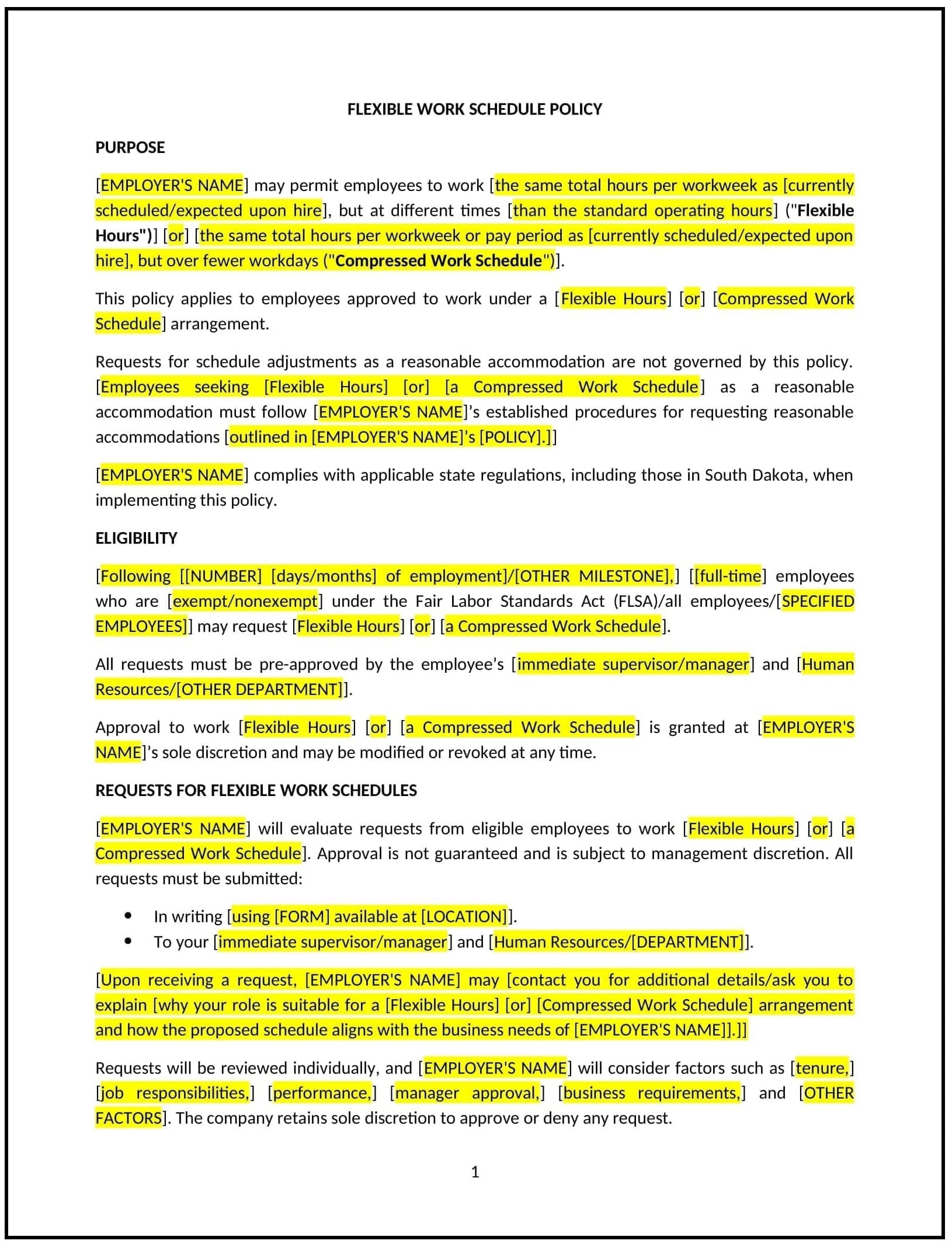Flexible work schedule policy (South Dakota): Free template
Got contracts to review? While you're here for policies, let Cobrief make contract review effortless—start your free review now.

Customize this template for free
Flexible work schedule policy (South Dakota)
This flexible work schedule policy is designed to help South Dakota businesses establish guidelines for employees requesting alternative work arrangements, such as remote work, compressed workweeks, or flexible hours. It outlines procedures for requesting and approving flexible schedules.
By adopting this policy, businesses can support work-life balance, enhance employee satisfaction, and align with general best practices for workplace flexibility.
How to use this flexible work schedule policy (South Dakota)
- Define flexible work schedules: Explain what constitutes a flexible schedule, such as remote work, flextime, or compressed workweeks.
- Establish eligibility criteria: Specify requirements for employees to qualify for flexible schedules, such as job role or performance.
- Set request procedures: Provide steps for employees to request flexible schedules, including required notice and approvals.
- Address performance expectations: Outline how employee performance will be evaluated under flexible work arrangements.
- Train managers: Educate supervisors on managing flexible schedules and maintaining productivity.
- Monitor compliance: Regularly review flexible work arrangements to ensure adherence to the policy.
- Review and update: Assess the policy annually to ensure it aligns with evolving business needs and employee expectations.
Benefits of using this flexible work schedule policy (South Dakota)
This policy offers several advantages for South Dakota businesses:
- Supports work-life balance: Demonstrates a commitment to helping employees balance work and personal responsibilities.
- Enhances employee satisfaction: Provides employees with flexibility, boosting morale and retention.
- Increases productivity: Allows employees to work during their most productive hours, improving overall performance.
- Reduces turnover: Encourages employee loyalty by fostering a supportive and flexible work environment.
- Attracts talent: Positions the business as a modern and employee-focused employer.
Tips for using this flexible work schedule policy (South Dakota)
- Communicate the policy: Share the policy with employees and include it in the employee handbook.
- Provide training: Educate managers on managing flexible schedules and maintaining productivity.
- Monitor compliance: Regularly review flexible work arrangements to ensure adherence to the policy.
- Address issues promptly: Take corrective action if flexible schedules are mismanaged or negatively impact workflow.
- Update regularly: Assess the policy annually to ensure it aligns with evolving business needs and employee expectations.